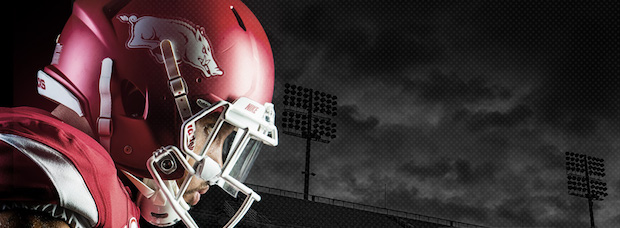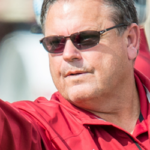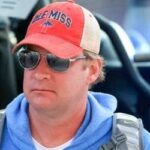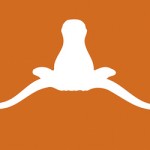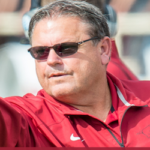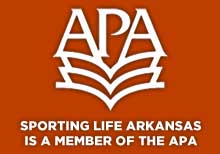 A friend, who is also somewhat of a fair-weather follower of the Arkansas Razorbacks, asked a reasonable question concerning’s the Hogs’ hoped-for improvement on the defensive side of the football this season:
A friend, who is also somewhat of a fair-weather follower of the Arkansas Razorbacks, asked a reasonable question concerning’s the Hogs’ hoped-for improvement on the defensive side of the football this season:
“Why should they be any better on defense? It’s the same players,” he pointed out.
The idea that a player’s ability to play the game, his innate talent to perform, doesn’t change is a reasonable assumption when an athlete has moved on from high school star another roster member on a Division 1 college football team. Size can be enhanced enormously, as we’ve seen with the apparently blowing-up of some Pillsbury doughboys on the Arkansas defensive lines in recent years; and with hours spent on development, some improvement in speed can be detected, even if it’s only 0.1 to 0.2 of a second difference over their 40-yard times from high school.
I suppose the general idea he was getting at was, a bad defensive football player is simply a bad defensively football player, and Arkansas seemed, to him, to have a lot of bad defensive football players in surrendering ridiculous amounts of passing yardage last year, enough to rank 116th among 127 FBS teams last season (be glad, Hog fans, that Arkansas didn’t defend the pass like No. 125 Oregon or No. 127 Arizona State did).
This Hog follower and I differ on our assessment of last year’s Razorback defenders. I don’t believe they all were necessarily bad players as much as many were put in bad positions to succeed. Then, one might ask, am I saying that defensive coordinator Robb Smith, who in 2014 was lauded as one of the Southeastern Conference’s best DC’s, suddenly couldn’t coach?
The answer there is no, he could coach. He had less experience and talent to work with, to be sure, in his second year at Fayetteville. He also came into the SEC as a relative unknown in 2014, and by last season SEC offensive coordinators had gotten a better handle on what Smith was trying to do with his defense.
I’m of the school of thought that experience does matter with players in all positions, but most especially on defense at linebacker and safety, and those aren’t positions where newer players are going to succeed quickly. Everybody may get by in some form or fashion on their athleticism, but in a league with the brilliant coaching minds that populate the SEC, the lack of experience is something sure to be exposed. And, it was evident in game 1 against woeful UTEP that Arkansas’s linebackers couldn’t cover down the field and the Hogs’ safeties were positioned to not allow anything over their heads, therefore leaving lots of room in the 18-23-yard middle range.
Dre Greenlaw, one year removed from competing on the nearby Fayetteville prep field, was that particular Razorback who was exposed last year. Greenlaw was thrust into a starting role for the last 11 games of the season when no one else could step up to an SEC level at linebacker alongside Brooks Ellis and Josh Williams (who would be lost for the season at Tennessee). Greenlaw, who in a different college program with even average depth at linebacker would have redshirted in his first season on campus, went on to make postseason “all freshman” teams, mainly because the guys who make those teams are freshmen who play significantly, which he did. He had to.
Greenlaw led Arkansas in tackles in a handful of games, and he seemed around the ball quite a bit. Frankly, he was there because opposing offenses were targeting him play after play after play. He was out of position as much as he was in the right spot, and if he wasn’t already out of position, he was fast enough to run himself out of the play because of the ingenuity exhibited by offensive coordinators to cause that to a bewildered first-year player.
Fully expect Greenlaw to be 10 times the football player he was a year ago, simply because of the intense education he acquired from playing so much so early. He’ll be an amazing football player by his junior year, and something special as a senior. He reminds me of a bigger and surely-as-fast Damian Swann, who excelled at Georgia and is in the NFL.
But for his sophomore season, which starts on Saturday against Louisiana Tech in Reynolds Razorback Stadium, Greenlaw’s improvement will be what makes the senior Ellis a better player in 2015. Also, some added depth will give Ellis more time to rest this season. You simply don’t want Ellis in downfield pass coverage on a regular basis, like he found himself last year, and you don’t want him playing 83 out of 85 snaps against a spread offense either. With Greenlaw more likely knowing what’s coming at his spot, Ellis will be able to focus less on every linebacker’s assignment and more on just his own.
The 30 or so pounds that Arkansas’s defensive tackles have dropped, on average, since last season will make a big difference in overall quickness up front and in pressuring opposing quarterbacks. Why anyone thought senior nose tackle Taiwan Johnson needed to beef up from his 2014 physique is anyone’s guess, but it obviously slowed him down considerably last season, and Arkansas’s defensive disruption from 2014 was negated often last year.
Granted, Arkansas’s defensive line was not going to be the same from 2014 to ’15 anyway when third-year sophomore Darius Philon jumped to the NFL following his breakout year, and the Hogs also would be without veteran defensive end Trey Flowers also headed to the pro ranks. Those two and strongside linebacker Martrell Speight were the linchpins to Robb Smith’s dynamic changes that made the Hogs’ 2014 defense so formidable.
End Deatrich Wise Jr. was noticeably bothered by a leg or hip injury for the first half of last season, but as he became more mobile over the last five games, his sack total took off with eight total. Now a senior and with the way he came on late in 2015, Wise suddenly is on all-star watch lists. A fifth-year senior who physically may be the best built Hog defensive end since Billy Ray Smith Jr., Wise will be all the more wiser in terms of not taking plays off, if he follows the pattern of other senior Hog leaders in the past.
Adding prep star McTelvin “Sosa” Agim and putting his quickness at tackle, plus shifting quick senior Jeremiah Ledbetter inside, should cause more havoc for lumbering offensive linemen. With more depth in the line (watch true freshman Austin Capps), nobody should have to play too many snaps and wear out in the second half.
End Tevin Beanum, now a junior, has missed part of spring, the offseason and some of the August practices because of a personal issue that, we would guess, has been resolved, based on his return. But it’s hard to expect Beanum, as athletic as he is, to be at his best right off the bat. However, maybe the best off-season story was the return of onetime linebacker Randy Ramsey, who didn’t take classes and discipline seriously enough the first time around, but figured out he needed them to continue to play football, which he wants to do. Now, Ramsey will be used off the edge as a pass rusher.
I predict Razorback followers will be amazed at how improved the Arkansas secondary looks this season with a more active pass rush coming from inside and off the edges, and with Robb Smith being able to be more unpredictable again with his calls. He’s got an old defensive head in Paul Rhoads, now the Razorback secondary coach after his tenure as head coach at Iowa State ended last year, to lean on for sound advice, too.
Yes, Arkansas has the same secondary players back from a year ago, but like the other Hogs who gained a year’s experience, they will play faster when they don’t have to think as much but can just react. This will probably be most evident with the third-year safeties, junior Josh Liddell and redshirt sophomore Santos Ramirez, with the now blossoming, now confident and hard-hitting Dre Coley backing them up. That fraction of a second lost becaue of a better front that forces a quicker throw will mean all the more for the now veteran cornerback corps – junior Henri Tolliver, seniors Jared Collins and D.J. Dean and sophomore Ryan Pulley, whose improvement from an awful freshman debut vs. Tennessee-Martin to an impressive bowl performance against Kansas State was dramatic.
Why should Arkansas be better on defense? Because of these areas: experience that means quicker reactions at the younger linebacker and safety positions; a rededication during the offseason to the needed quickness required up front; and the addition better talent (Agim and Ramsey, plus some impressive young backup linebackers) for more depth; plus better coaching overall as a unit with the addition of Rhoads.
Even with concerns about its offensive line, Arkansas should not have to rely solely on its defense in a lot of its early schedule, particularly Saturday, but it will have to factor strongly the following week at Fort Worth vs. defensive minded TCU, and most assuredly in Arlington, Texas, two weeks later vs. Texas A&M. The time for all of Arkansas’s units to come together needs to be Oct. 8 in Fayetteville vs. Alabama, leading into a final stretch of six games (three at home, three on the road), all offering the Hogs reasonable chances of winning.


